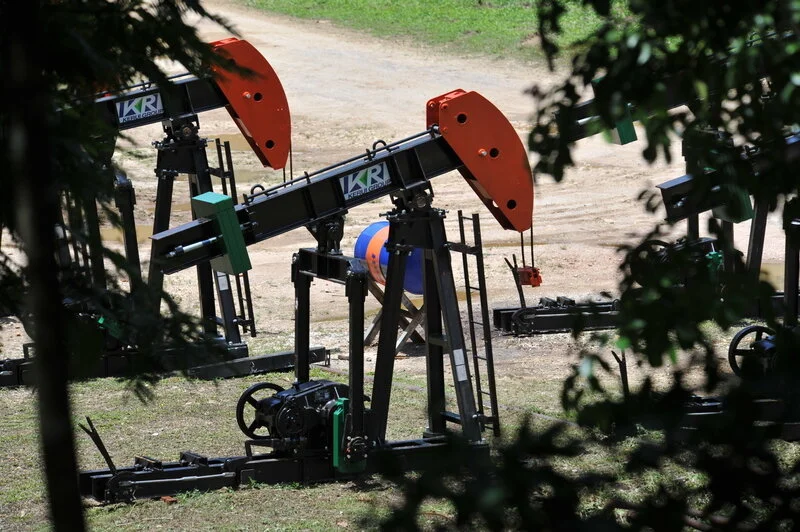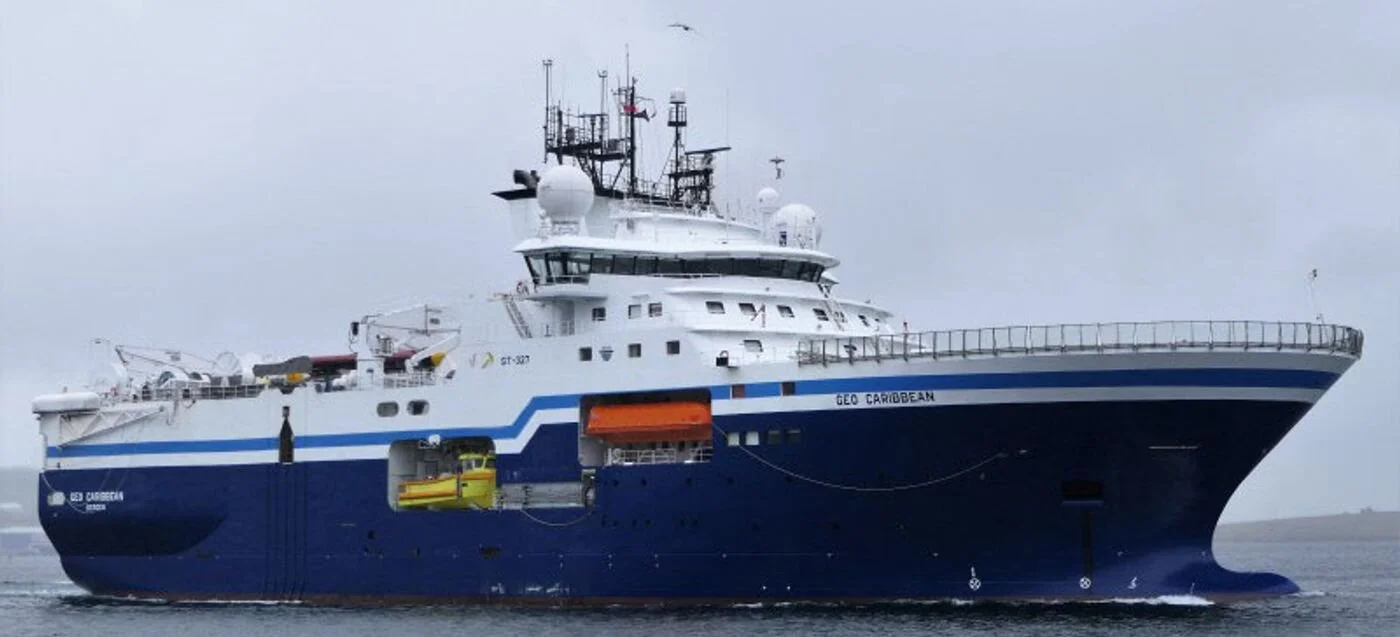ExxonMobil has made its final investment decision to proceed with the Payara field offshore development in Guyana after receiving government approvals. Payara is the third project in the Stabroek Block and is expected to produce up to 220,000 barrels of oil per day after startup in 2024, using the Prosperity floating production, storage and offloading (FPSO) vessel.
The new coronavirus and climate change have many similarities. Both are global and highlight the dangers of ignoring experts and scientific data. They do not respect national borders and no one is immune from their impacts. Only joint actions will effectively control the pandemic or mitigate the scale of climate change.
In many parts of the world, renewable energy (RE) has been integrated in some way into local electricity grids. This has been done in several Caribbean countries, including Suriname and Jamaica. The increased utilisation of renewable energy is consistent with countries’ commitment to the Paris Agreement, but also is being used as a strategy to bolster energy security and diversify sources of energy. Because of this global push, renewables share in electricity has increased from 18% in 2000 to 25% in 2018. The greatest source of renewable energy globally comes from hydropower. Note that in countries like Germany and the UK, installed RE capacity accounted for 41.99% and 33% of generation capacity respectively in 2018. Costa Rica and Uruguay have systems which are close to 100% powered by renewables. (Costa Rica for over 250 days in 2016 ran entirely on renewable energy and in 2015, 98.1% of its energy came from renewables).
The singular phenomenon of COVID-19 has resulted in massive shocks to economic and social systems over the last few months. It was with this knowledge in mind that the European Union Delegation in collaboration with Cropper Foundation, IAMovement and United Nations organised a panel discussion that focused on a critical question: how do we ‘Build Back Better’ post COVID-19? As countries around the world take stock of the economic damage caused by the pandemic and make plans to return to ‘normal’, there have been concerted calls to reject a ‘business as usual’ paradigm.
A United Nations report describes governance as the exercise of political and administrative authority at all levels to manage a country’s affairs. It comprises the mechanisms, processes and institutions through which citizens and groups articulate their interests, exercise their legal rights, meet their obligations and mediate their differences. In keeping with the description, this article proffers that civil society (CS) can play a greater role in developing a country’s policies, transformation strategies and reporting and monitoring mechanisms for how resources are allocated.
At the time of writing, Trinidad and Tobago is in the midst of a sharp spike in our coronavirus cases and like a lot of other people in the country, I am back to working from home. Since the original lockdown in March 2020, I have only actually been into my office in Point Lisas a handful of times. Our offices remain open mainly to provide the essential training and certification services that we need to deliver to the industry, but like many of our members, our policy remains that whoever can work from home, should work from home.
The Caribbean Community (CARICOM) Energy Policy and Regulations Help Desk has now been established. The Caribbean Electric Utility Services Corporation (CARILEC) Technical Assistance Programme for Sustainable Energy in the Caribbean (TAPSEC) was utilised to develop the Help Desk.
The successful ExxonMobil (Exxon) campaign in Guyana has been halted due to lengthy delays in approvals for the Payara project.
According to Predator Oil and Gas (Predator), the company served written notice on July 14th 2020 of its intent to exercise its option to enter into a share purchase agreement to acquire the entire outstanding issued share capital of FRAM Exploration Trinidad Ltd (FRAM) assuming zero net debt at the time of completion, and subject to contract, technical, legal and commercial due diligence.
Tullow Oil (Tullow) and project partners plan to spud a wildcat early next year offshore Suriname. The intended drilling will be for the Goliathberg- Voltzberg North prospect (GVN-1) in Block 47. The Stena Forth drillship has received the contract and will carry out the campaign in Block 47, around 160 miles north of Suriname.
The Pt. Lisas Energy Association (PLEA) has engaged the Trinidad and Tobago Laboratory Accreditation Service (TTLABS), a Department of the Trinidad & Tobago Bureau of Standards (TTBS), to provide auditing services for its Drug and Alcohol Testing Certification Programme. The programme is aimed at improving the reliability of drug and alcohol test results that are offered as proof of sobriety among the contractor workforce.
Subsea 7 announced the award of a sizeable contract for work offshore Trinidad and Tobago. According to the company, the size of the contract is between US$50 million and US$150 million.
Oojagaree Jagoo, Managing Director of Ecosol and OJ’s Electrical, has created what he calls a sustainable, environmental innovation to the oil and gas waste disposal industry in Trinidad and Tobago.
In Trinidad and Tobago, the coronavirus has not had a huge impact in terms of project execution. Many of the large oil and gas projects around the world have experienced cancellations or significant postponements. There are two ongoing projects you should keep your eye on in Trinidad and Tobago.
BPC, the Caribbean and Atlantic margin focused oil and gas company, announced that it has received formal notification from Stena Drilling, nominating the Stena IceMAX as the intended drill rig for the upcoming Perseverance #1 drilling campaign.
South America has made a cost-cutting leap since 2013, when it was the world’s most expensive region for deepwater oil and gas production costs. Average operational expenditure (opex) per barrel of oil equivalent has more than halved since then, from roughly $26 to $12.7 in 2020, a Rystad Energy report shows. The region also enjoyed the largest cost decline globally this year, in both absolute and percentage terms according to energy research firm, Rystad Energy.
“Oil is still good business’ has been one of Minister of Energy and Energy Industries Franklin Khan’s signature catch phrases over the past few years. The newly reappointed Minister of Energy and Energy Industries has consistently pointed out that oil remains an important and very valuable commodity for Trinidad and Tobago, notwithstanding the fact that our hydrocarbon sector is dominated by natural gas.
The oil sectors of Trinidad and Tobago, one of the world’s oldest oil producers, and Guyana, the newest, have seemed to be on a vastly different trajectory over recent years. While Guyana has seen an unprecedented string of exploration successes and new production already on stream from the Liza field, Trinidad and Tobago has experienced a decade-long decline in its oil sector.
Shearwater GeoServices Holding announced the award of a large towed streamer 3D seismic survey for Block 52, offshore Suriname by PETRONAS Suriname.
The four-month project is scheduled to commence in Q4, 2020.





















